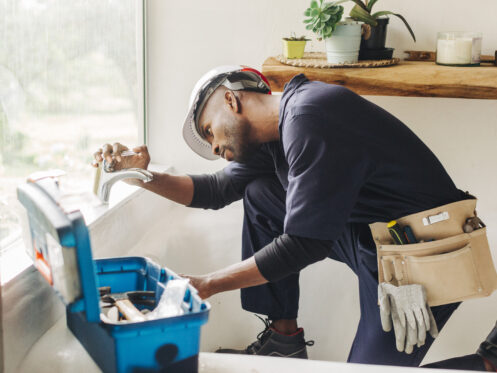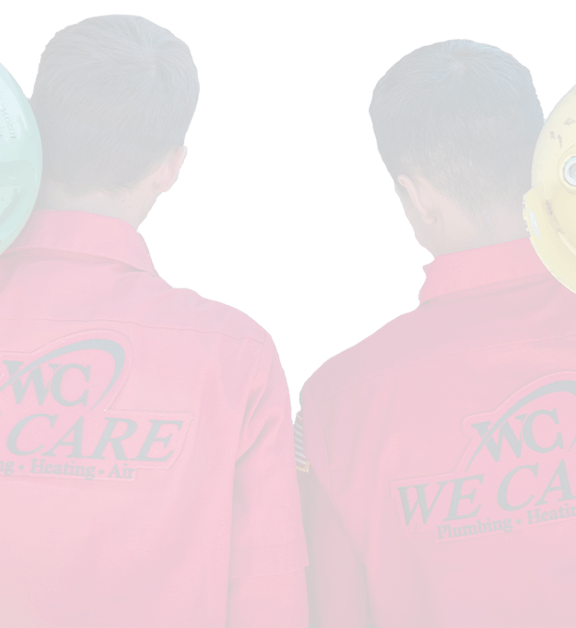A little drip might seem harmless, but that tiny leak could be plotting a costly surprise for you and your home. Minor plumbing leaks are often easy to overlook—hidden under sinks, behind walls, or quietly dripping in the basement. Yet, these minor nuisances can lead to skyrocketing water bills, nasty pests, structural damage, and even mold growth. Ignoring them now can turn a quick fix into a financial headache.
Minor issues can escalate, and we’re here to help you stay ahead of the problem. So, don’t let that innocent drip fool you—catching leaks early can save you time, money, and a lot of frustration.
Rising Water Bills
That tiny drip may not seem like it’s making a dent in your budget, but over time, the costs can add up significantly. A single leaking faucet can waste gallons of water each day, and if the problem extends to a hidden pipe or toilet, the waste can be even more staggering. What’s worse is that water waste isn’t always immediately noticeable. You may only realize the financial impact when you receive a shockingly high water bill. Beyond wasting water, you’re paying for something you’re not even using, which can feel like throwing money straight down the drain.
Structural Damage
Water doesn’t simply evaporate—it has to go somewhere, and when a leak is left unchecked, it can cause significant damage to your home. As water leaks from pipes, faucets, or appliances, it can slowly seep into walls, ceilings, floors, and even the foundation. Initially, the damage may not be visible, but continuous exposure to moisture may degrade structural components over time. Drywall can become soft and brittle, causing it to crumble and fall apart. Wooden beams, joists, and flooring can warp, swell, or even rot. The longer the leak continues, the greater the damage and the deeper the water enters the building.
Water invading your home’s structure might potentially jeopardize its stability. For example, if water seeps into your home’s foundation, the soil surrounding the perimeter might erode, causing foundation movements. This sort of damage might result in cracked walls, uneven flooring, or doors and windows that no longer shut properly. These structural issues aren’t just unsightly—they can also make your home unsafe to live in.
The longer you wait to address a plumbing leak, the more expensive and complicated the repairs become. In many cases, professional intervention is necessary to assess the extent of the damage and restore your home to its original condition. What began as a modest, easily resolved problem might quickly escalate into a huge rehabilitation job requiring a significant financial commitment. Leaks should be addressed as soon as possible to avoid major damage and expensive repairs in the future.
Home Insulation Damage
People usually think of pipe leaks as problems with your water system, but they can also have a big effect on the insulation in your house. Insulation is crucial for maintaining a pleasant temperature and increasing energy efficiency in your house. When water leaks into your walls or ceilings, it can saturate the insulation, making it less effective at regulating temperature. For instance, fiberglass or foam insulation can absorb water, causing it to lose its ability to keep your home warm and cool when you need it most.
Wasted Energy
Leaks don’t just waste water—they can also cause your energy bills to soar. For example, a leaky hot water line makes your water heater work harder to keep the appropriate temperature constant. The unit has to run longer and use more energy because of this extra stress, which makes your gas or power bills go up.
Another example is a leaking faucet or toilet. It may seem like a minor issue, but a constantly running faucet wastes both water and energy, especially if hot water is involved. Over time, this can add up to a substantial increase in your heating bills as well.
Hello Pests
A plumbing leak can create an inviting environment for pests. Moisture is essential for many pests, including insects and rodents, which are naturally drawn to damp areas. A leaking pipe under a sink or behind a wall can provide the perfect breeding ground for pests like termites, ants, cockroaches, and even rodents. These creatures thrive in areas where there’s consistent moisture, so even a tiny leak can attract an infestation that can worsen over time.
For example, a leaking pipe under the kitchen sink can create a perfect hiding spot for ants and cockroaches, while a slow leak in a crawl space may invite rats and mice into your home. As these pests move through the pipes or the walls, they can cause further damage to your property, chewing on insulation, wires, and even wood framing.
Environmental Costs of Ignored Leaks
Aside from the financial and structural implications, there is an environmental cost to consider. Water is a valuable resource, and squandering it due to leaks puts an unneeded burden on local water resources. While it may not seem important in your house, minor leaks waste millions of gallons of water each year. Addressing these leaks is one small but meaningful step toward reducing water waste and doing your part for the environment. You’re not just saving money, you’re helping conserve a vital resource for future generations.
Damage to Your Home Value
When it’s time to sell your home, minor plumbing leaks that you’ve ignored could become a significant problem. Home inspectors thoroughly check for issues, and plumbing problems are a typical red flag for buyers. For example, if a history of leaks or water damage is discovered, it could lower your home’s value or scare off potential buyers.
Visible signs, like water stains on ceilings or walls or a musty smell in the basement, often indicate past leaks. Even if you’re not planning to sell anytime soon, maintaining your plumbing system helps preserve your home’s value. Fixing leaks now—such as a dripping faucet or leaking pipe—can save you from costly repairs or negotiations later on when it comes time to sell. A little attention now can ensure a smoother, more profitable sale in the future.
Mold Growth
When water lingers, mold isn’t far behind. Mold thrives in damp places, making areas around undetected leaks an ideal breeding ground. While mold might start as a minor inconvenience, it can quickly become a serious health danger. If you’re exposed to mold spores, you can cause respiratory issues and allergic reactions. The longer the leak remains, the more extensive the mold growth becomes, often spreading to areas you can’t easily see. Removing mold is not only expensive but can also require you to temporarily leave your home, further adding to the disruption caused by ignoring a small leak.
Emotional Stress Toll
Dealing with a plumbing leak can be stressful, especially when it spirals into a more significant issue. Imagine coming home to a flooded basement or waking up to water-stained ceilings. Aside from the financial weight, the emotional toll may be overwhelming. You might be worried about the next unplanned cost or spend hours planning fixes. It’s an unnecessary source of stress that no person should have to deal with. Fixing leaks early provides peace of mind, allowing you to enjoy your property rather than worry about potential calamities.
Don’t Wait
When it comes to plumbing leaks, waiting is never the answer. Those small drips can lead to severe damage that not only hurts your wallet but disrupts the comfort of your home. Taking action now means avoiding costly repairs and keeping your home safe and dry. With the We Care Plumbing, Heating, & Air team, you have a team you can trust to tackle leaks, no matter how big or small.
Reach out today, and let us show you how simple it can be to protect your home—and your budget—from unexpected plumbing surprises. We also offer shower, repiping, sump pump, septic, drain, cooling, heating, indoor air quality, humidity control, dehumidification, and kitchen and bathroom remodeling services.






